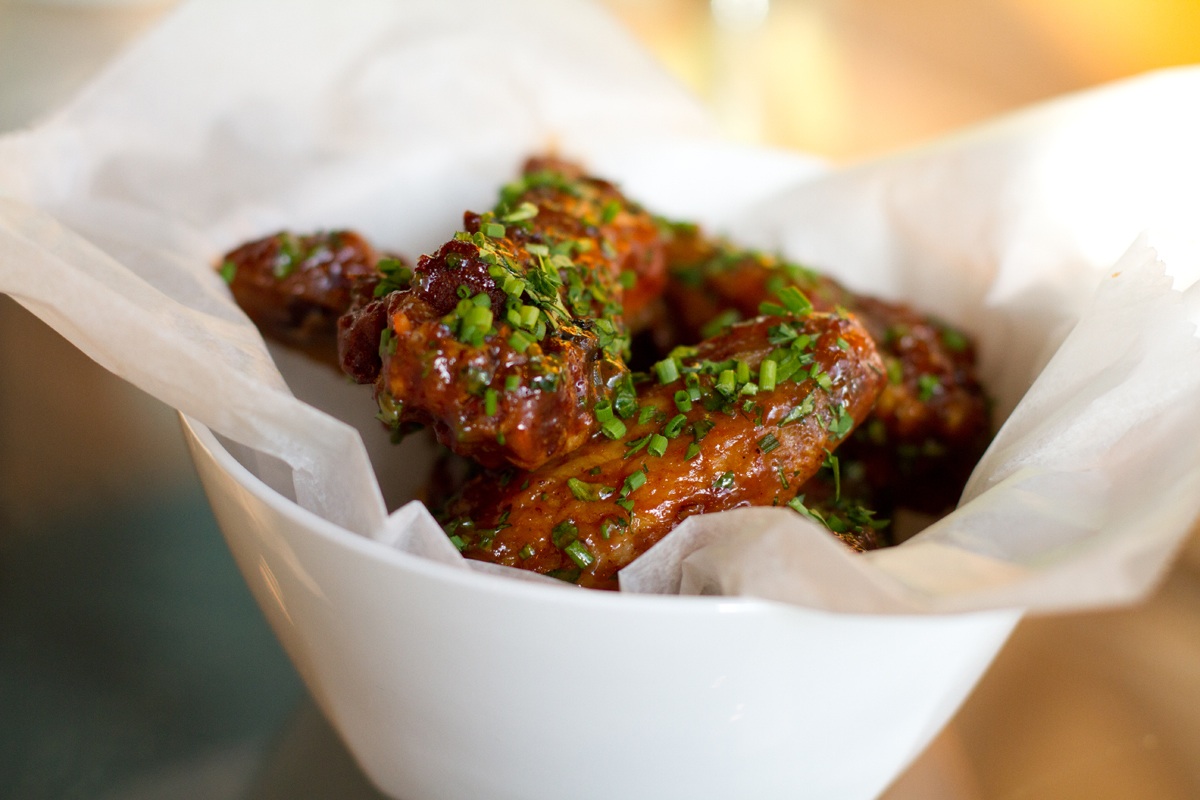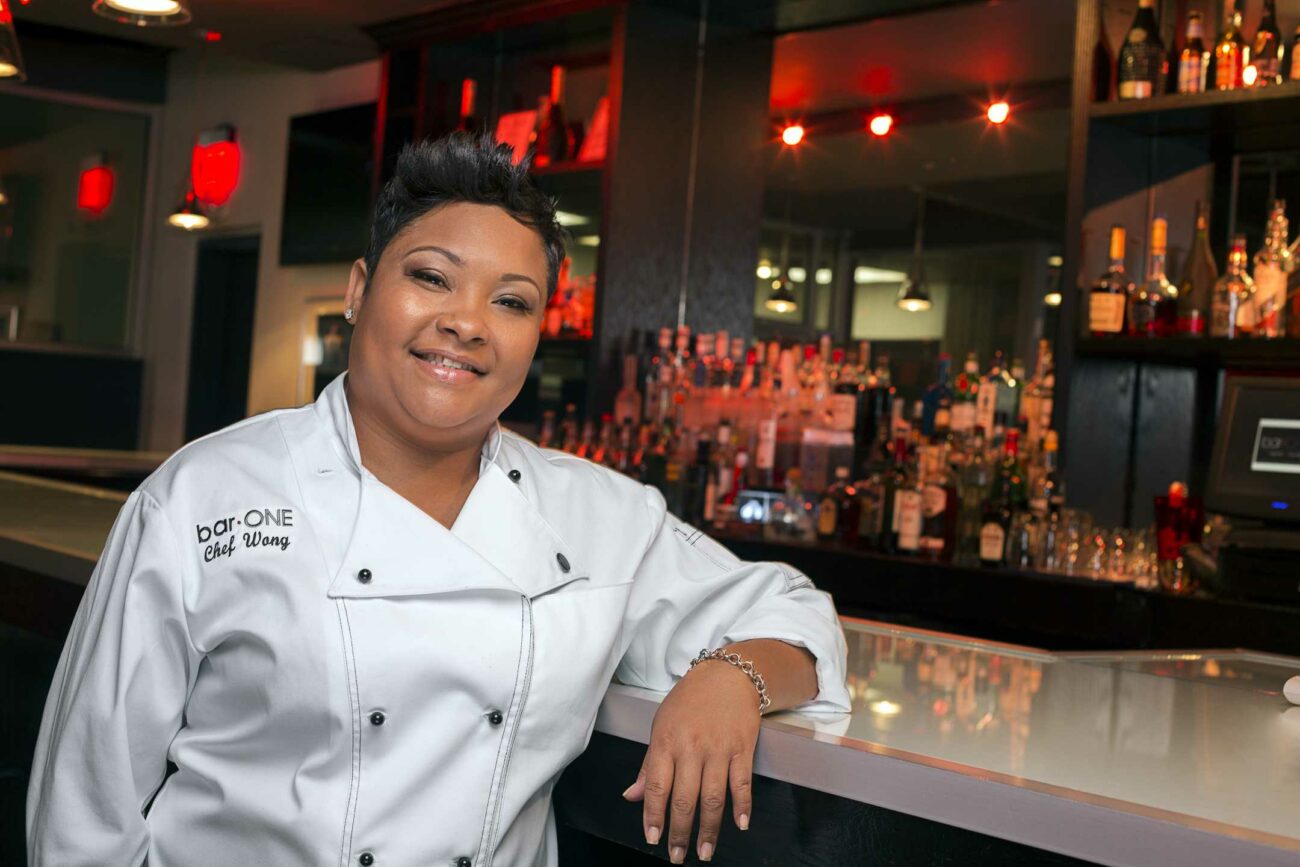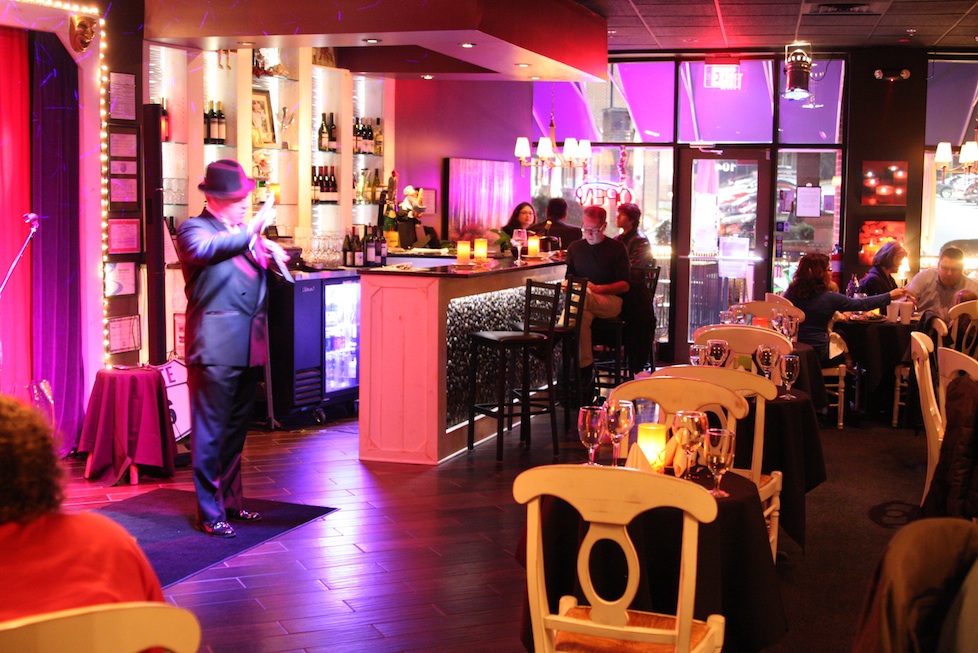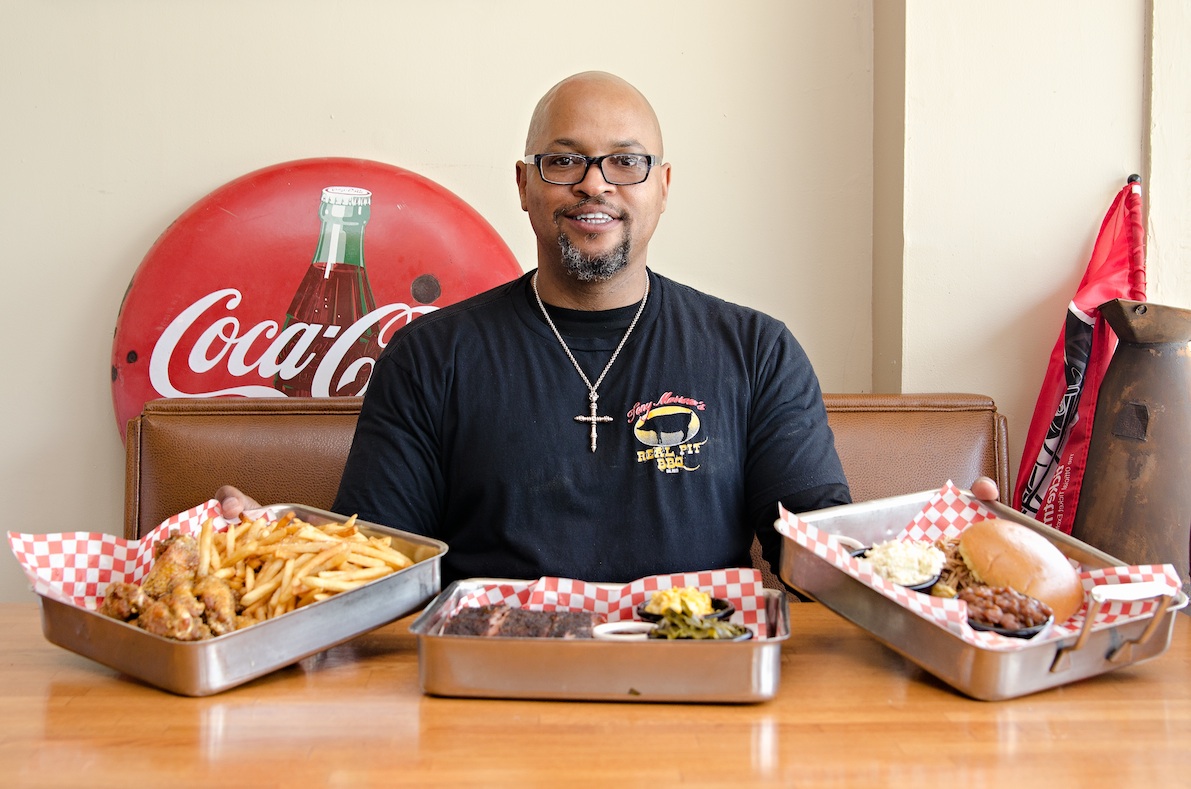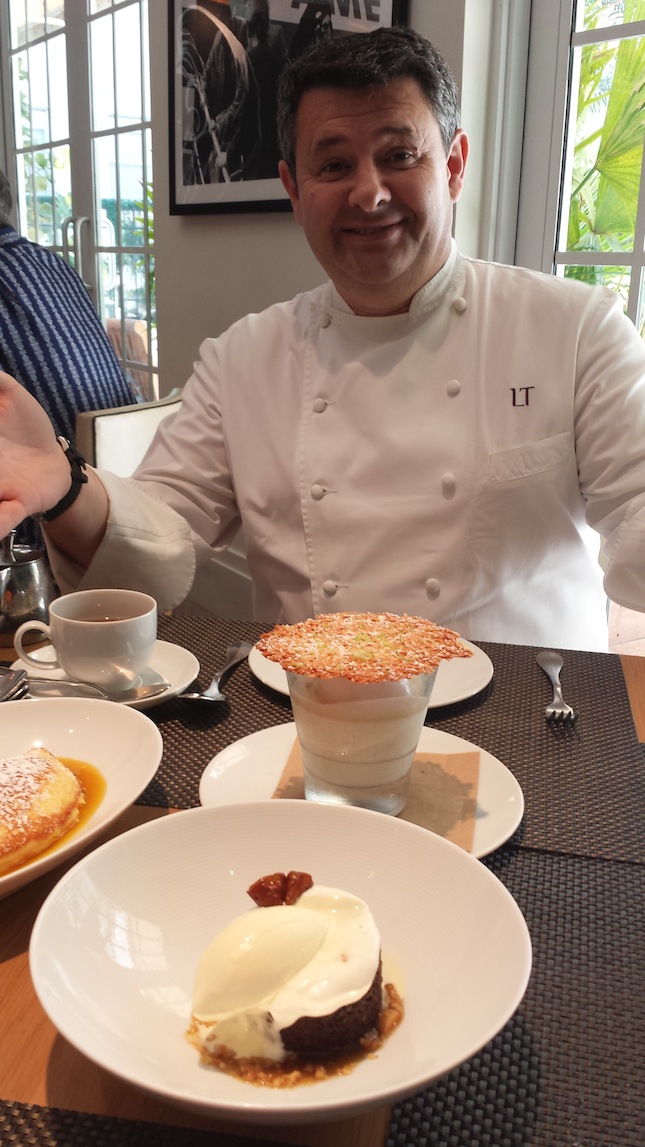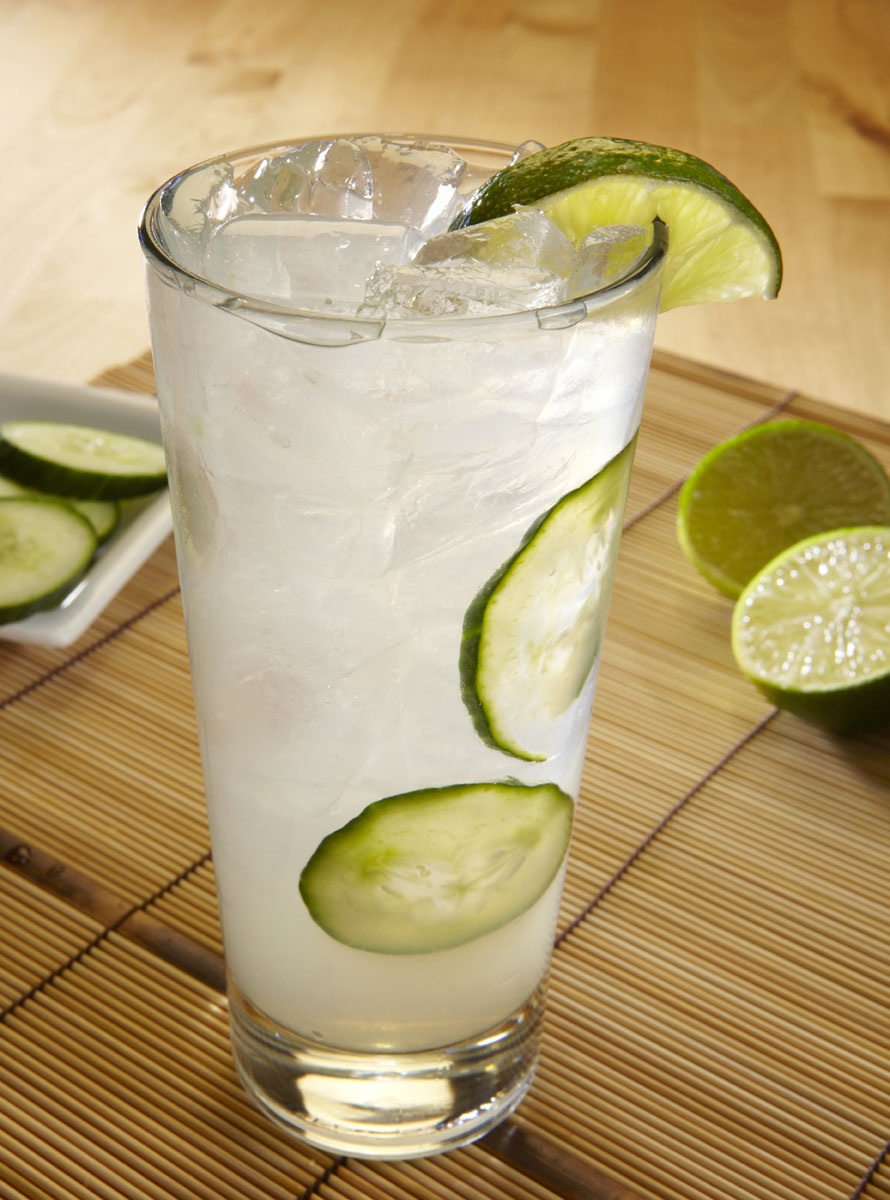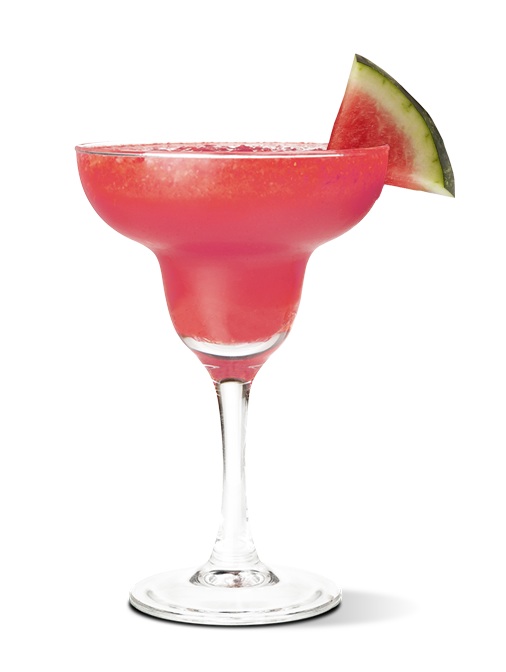Cruzado {366 Fifth Street NE; 404.872.0846}
Formerly Las Palmeras, this exciting new concept—recently opened in the heart of Midtown by Owner and Operator Grace Lee—offers an enticing fusion of Cuban, Pan-Latin, and Caribbean cuisines. Housed in an historic 1920s building, Cruzado creates a special niche in the community. The casual ambience and warm environment lend themselves perfectly to Latin and Caribbean favorites, many of which Lee grew up eating in South Florida. Executive Chef Carlos Alberto is a Puerto Rican native with over nine years of culinary experience. Signature dishes include the Pollo Asado (marinated fried chicken with a Cuban sauce), Rabo Encendido (oxtail stew), Medianoche (ham, roast pork, and cheese in a sandwich) and handmade Cuban Tamales, to name a few. Venture over to the hookah lounge and bar for tapas, mojitos, and a smoke, if that’s your bag. cruzadorestaurant.com
The Family Dog {1402 North Highland Avenue; 404.249.0180}
Chef Ron Eyester and Jason Chenette of Rosebud have introduced a new neighborhood bar to Morningside—The Family Dog. This is a place for those who like their music loud and their drinks strong, along with some creative pub fare that might make you do a double take—like the Spaghetti and Lobster Egg Rolls. You’ll also find a selection of farm-to-table cuisine, “Fat Tuesday” specials (think Po’ Boys and Oyster Stew), and a hefty beer and cocktail list. And for those well-trained ears among us, visitors will appreciate the jukebox blasting nightly, and the local artists appearing every Friday, Saturday, and Sunday. thefamilydogatlanta.com
Aspen Bartini {322 East Paces Ferry Road; 404.549.8700}
At Aspen Bartini, the attire may be upscale and chic, but the attitude is all about casual comfort. Aspen is a social club—part lounge, part dance floor, and part piano bar—with combined flavors of cosmopolitan nightclub and rustic wilderness lodge rolled into one. This no-cover establishment in Buckhead keeps the beats pumping with local DJs rocking and the house pianist belting it out on a baby grand. Executive Chef Tony Sharpe prepares appetizers, entrées, lunches, and desserts to bolster a variety of premium wines, beers, and signature drinks. Book the VIP section—boasting rustic décor and extra special service—for a party or anniversary, and visit on Tuesdays for Tasty Tuesday deals with discounted wine, fruit, and cheese plates from 5-9pm. aspenbartini.com
Article 14 {1180 Peachtree Street, Suite B; 404.443.8432}
Unfolding in the heart of Atlanta is the next chapter of the Legacy Restaurant Partners dynasty, Article 14. Recently opened on the corner of 14th and Peachtree Streets, Article 14 offers a refreshing take on dining, paying homage to the deep-seated local tradition of storytelling. Chef Bernard McDonough (also of Olmsted) brings top culinary talent and a variety of cultural food traditions to the table. His menu—partitioned into “Sections” and “Amendments”—tells a delicious story, complete with traditional favorites, fresh seafood, house-cured meats, and homemade dressings and sauces. Try the Buttermilk Fried Plantation Quail or the Angel Hair Pasta with butter-poached lobster, and perhaps you’ll feel compelled to tell a friend. article14.com
Moderna Atlanta {8540 Roswell Road, Sandy Springs; 770.557.0945}
On February 22, 2013, Moderna Tacqueria and Teatro opened in Atlanta, presenting an artistic new dining and nightlife experience. With about 5,000 square feet, this restaurant’s ambiance is hip and modern, designed with sustainable architecture and contemporary flair. Enjoy over 11 varieties of tacos, abundant Latin-inspired entrées, and tequila drinks aplenty. And know that behind the pumping music and chic scene, there’s a compassion that sets Moderna apart. Owner Josh Ahlzadeh, upon hearing of a local family with a gravely ill child, contributed the proceeds from Moderna’s grand opening event to the toddler’s medical expenses. Going forward, Ahlzadeh plans to support local performing arts, sports, and creative arts programs throughout the area. modernaatl.com
Argosy {470 Flat Shoals Avenue; 404.577.0407}
Opened on February 28, 2013, Argosy restaurant offers the neighborhood a casual beer pub—the new place to go for American craft brews and contemporary Southern cuisine. During the remodel, 100-year pine wood was torn from the rafters and repurposed for the walls and furniture. This resulted in an atmosphere reminiscent of a wooden ship’s hull. The restaurant’s name stems from the Italian word for “merchant ship,” a fitting moniker considering the design. The three-tiered dining space is complete with an upper balcony and an ample back bar decorated with rustic taxidermy and living terrariums. But the real excitement is in the menu, which offers a taste of everything from wood-fired pizzas and burgers to hanger steak, scallops, and whole branzino. Start with some housemade pickles and olives, and finish with a profiterole to round our your Argosy experience.
Crooked Tree Cafe {2355 Cumberland Parkway, Suite 110; 770.333.9119}
The Crooked Tree hearkens back to Owner Jeff Haeger’s fond memories of climbing shady oaks during a camping trip to Cumberland Island off the Georgia coast. At his restaurant, he advocates for green practices and locally-grown ingredients, including meats, poultry, and produce. After sourcing and preparing the meat, the Ole Hickory smoker cooks low and slow for flavorful, hickory-smoked Brasstown Pork, Springer Mountain Chicken, and House-Smoked Turkey and Swiss sandwiches. If you’re in the mood for smoked goodness, we’re pretty sure we’re barking up the right tree with Crooked Tree Cafe. Pressed for time? Order for the whole family with their convenient takeout packages for up to eight. crookedtreecafe.com
Poor Calvin’s {510 Piedmont Avenue NE; 404.2544052}
Poor Calvin’s, the new go-to for Asian-American fusion cuisine, came to Atlanta in late November of 2012. But don’t let the name deceive you—Poor Calvin’s is rich in cultural, flavor, and character. Inspired by his travels around the world, Owner and Chef Calvin Phan adapts classic, conventional American-style comfort foods to create unexpected—and wildly successful—flavor combinations. Think Lobster Macaroni and Cheese infused with Thai curry, or Grilled New York Strip with Southeast Asian spices. Now open for brunch (on Saturday and Sunday from 11am-3pm), Poor Calvin’s dishes up the ante on items like Omelette in the Pot (silky smooth eggs served steaming hot, surrounded by vegetables) and Savory Korean Pancakes. Located in a beautifully-renovated Irish pub—complete with a full bar—this affordable Asian-American fusion joint has flavors for any palate. poorcalvins.com
Cafe Posh {4920 Roswell Road NE, Suite 14; 404.303.7303}
The Old-World feel at Cafe Posh has created quite the following of customers. Shimon and Simona Edery create soul-warming Israeli dishes like shakshouka and falafel, alongside a selection of breads from Alon’s Bakery which includes croissants, biscotti, and cookies. Now, Cafe Posh has upgraded the menu, the space, and the beverage selection to include beer, wine, and brand-new coffee drinks. cafeposhatlanta.com



